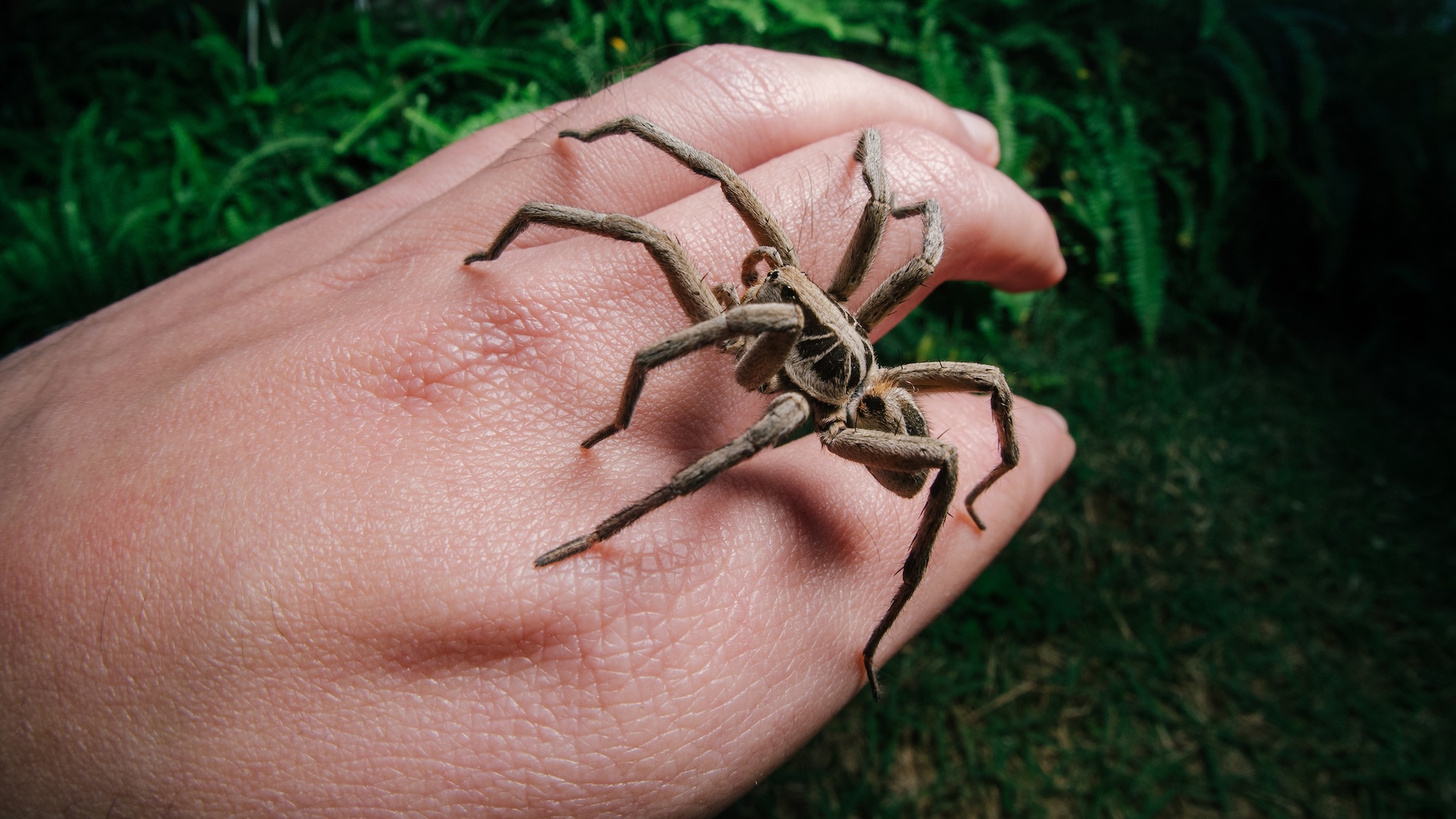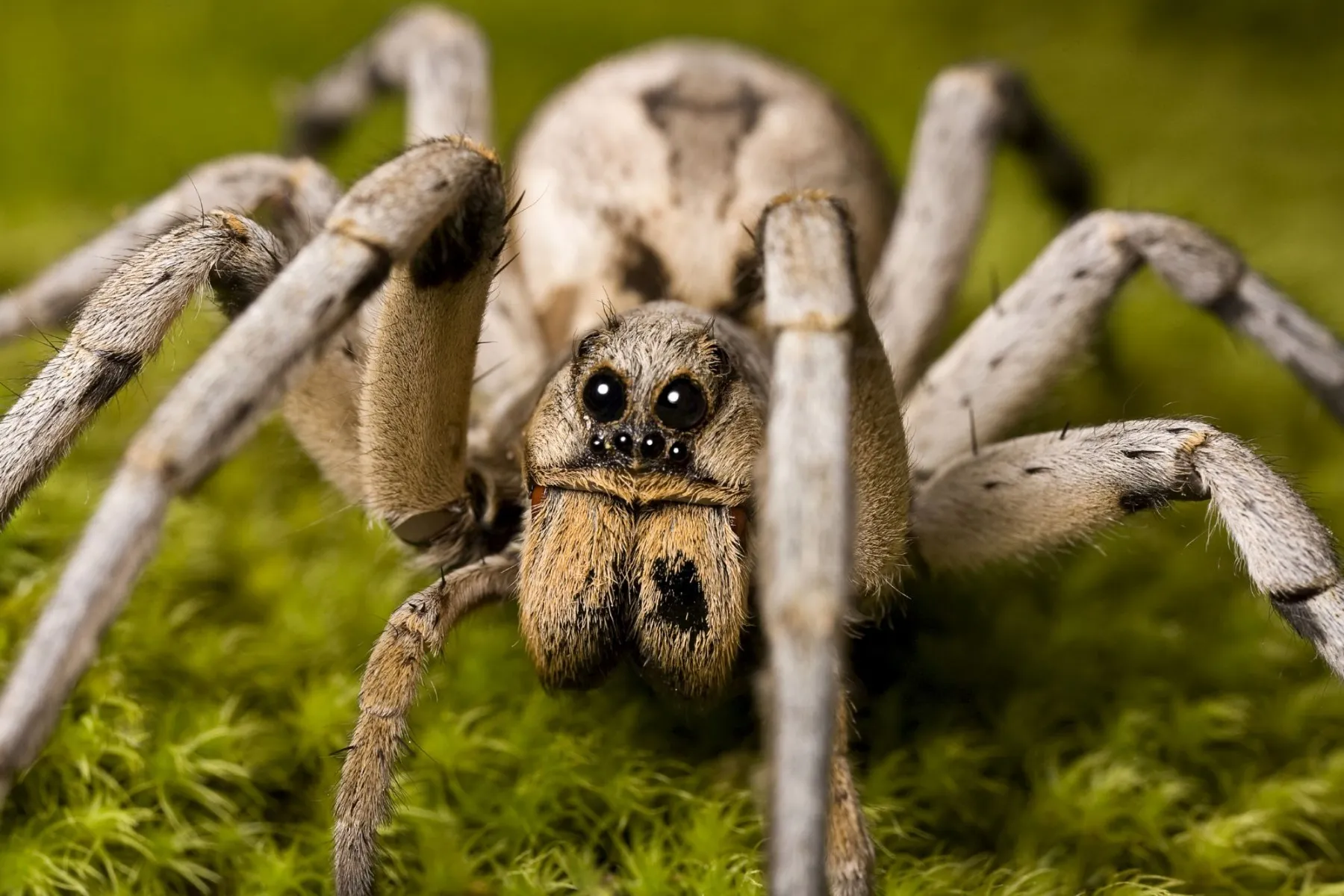The wolf spider UK is an agile, ground-dwelling predator and a common yet often misunderstood arachnid found throughout the British Isles. Unlike many of its web-spinning cousins, this spider prefers to stalk and chase down its prey, earning it the “wolf” in its name. Belonging to the Lycosidae family, wolf spiders are noted for their speed, strong eyesight, and solitary nature. Rather than relying on webs, they use stealth, precision, and quick reflexes to ambush insects, making them highly effective hunters in natural pest control.
The most common species seen in the UK is Pardosa amentata, easily spotted during spring and summer months in gardens, meadows, and heathlands. Typically brown or grey with darker markings, their appearance helps them blend into the undergrowth, soil, or leaf litter. Covered in short hairs and equipped with eight keen eyes, the wolf spider is a marvel of nature often unfairly maligned due to confusion with more dangerous species like the false widow or even myths about giant foreign spiders like the camel spider or banana spider.
Where Do Wolf Spiders Live in the UK?
In the wild corners of Britain — from grassy fields to woodland clearings — the wolf spider UK thrives. These spiders are highly adaptable and can be found in a variety of habitats, including gardens, heathlands, and even urban green spaces. Their preference for dry, open ground allows them to move freely and effectively hunt their prey. You’ll often find them skittering across soil paths, basking in sunlit areas, or retreating under stones and logs.
They are especially active during the warmer months when insect prey is abundant. During autumn and winter, they may retreat to sheltered spots or even enter homes in search of warmth, although they are not naturally inclined to indoor life. Despite their presence near human dwellings, they pose no threat and are in fact beneficial to have around. Their ability to control pest populations such as aphids and small insects makes them a silent ally to gardeners and farmers alike.
Behaviour and Hunting Tactics of the Wolf Spider
The wolf spider UK is unlike the typical web-bound spider. Instead of spinning intricate webs to trap prey, wolf spiders rely on speed and agility. They stalk their prey patiently and then pounce with incredible precision. Their large, forward-facing eyes help them track movement and distance with accuracy — a skill rare among spiders. These visual hunters often hunt during the day and use their camouflage to remain unnoticed until they strike.
A particularly fascinating trait of the wolf spider is its maternal behaviour. After laying eggs, the female attaches the egg sac to her spinnerets, carrying it with her wherever she goes. Once the spiderlings hatch, they climb onto their mother’s back and cling to her for several days until they are ready to disperse. This level of parental care is unusual among spiders and showcases the complexity of their behavioural instincts — adding another layer of intrigue to the wolf spider’s story.
Are Wolf Spider Bites in the UK Dangerous?

The mention of “spider bites” can trigger unnecessary panic, but the wolf spider UK is generally harmless to humans. Yes, like all spiders, it does have venom — but this is used to immobilise insect prey, not to attack humans. A bite from a wolf spider is rare and usually only occurs if the spider feels threatened or is handled roughly. If bitten, most people will experience mild irritation, swelling, or redness at the site.
Unlike the black widow spider or other venomous species found in different parts of the world, the wolf spider poses little to no medical risk in the UK. Symptoms from a bite typically subside within a day or two without treatment. It’s recommended to clean the area, apply an antiseptic, and monitor for any allergic reaction — although such reactions are extremely rare. In short, wolf spiders are not aggressive and should not be feared, especially given their ecological importance.
How to Identify a Wolf Spider in the UK
Distinguishing the wolf spider UK from other native species can be tricky, but certain features make it easier. These spiders typically have robust, hairy bodies with dark mottled patterns and long legs. They range in size from 5mm to 20mm depending on the species, with females generally larger than males. The eye arrangement is a key identifier — wolf spiders have eight eyes arranged in three distinct rows, with the middle row featuring two prominent, forward-facing eyes that reflect light in the dark.
If you spot a fast-moving, brownish-grey spider darting across the patio or through the garden, there’s a good chance it’s a wolf spider. They do not build webs, so you won’t find them suspended in corners or window frames. Instead, look near ground level — under plant pots, logs, or in the grass. Their quick, deliberate movements and tendency to flee rather than fight makes them easy to identify for the sharp-eyed observer.
The Misunderstood Reputation of the Wolf Spider
Despite their name and sometimes intimidating appearance, the wolf spider UK is often a victim of misidentification and fear. Popular media has long portrayed spiders as terrifying creatures — think of the exaggerated monsters in films or the menacing aura surrounding characters like Spider-Man’s adversaries. However, wolf spiders are far from villainous. They do not weave sticky traps or invade homes en masse. Instead, they live solitary, unobtrusive lives hunting down insects that would otherwise become nuisances.
These spiders are ecological heroes, not threats. While terms like “spider bite” often trend alongside panic-inducing articles, the reality is that wolf spiders rarely bite and almost never cause significant harm. Their presence in a garden or home is usually accidental and should be welcomed as a natural form of pest control. Educating the public about their true nature is essential to changing the narrative — from fear to appreciation.
Conclusion
The wolf spider UK is a captivating and beneficial member of Britain’s natural world. Its unique behaviour, maternal care, and ecological value make it one of the most interesting spiders native to the UK. Despite myths and misunderstandings, these spiders pose no real danger and play an important role in controlling insect populations across gardens and green spaces.
Rather than fear these remarkable creatures, we should strive to understand them. They are solitary hunters, natural pest managers, and quiet contributors to the health of our ecosystems. Whether spotted under a stone in your garden or racing across a woodland trail, the wolf spider deserves both our respect and protection.
Frequently Asked Questions
Are wolf spiders poisonous in the UK?
Yes, but only to insects. Their venom is not harmful to humans and rarely causes more than minor irritation.
Do wolf spiders live in UK homes?
They prefer the outdoors but may wander indoors during colder months in search of shelter.
How can I tell if it’s a wolf spider?
Look for a hairy, brownish spider with two large front eyes and fast, ground-level movement.
Are wolf spider bites dangerous?
No. Bites are rare and typically cause only mild symptoms like redness or swelling.
Do wolf spiders build webs?
No. Wolf spiders are active hunters and do not spin webs to catch prey.
You may also read: Audi Q7 2025 – UK Price, Specs, Interior & Full Review

